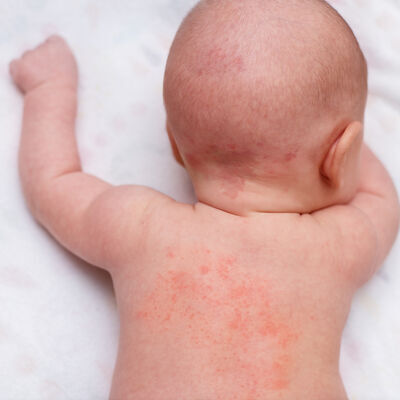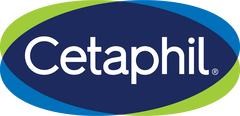
How Gentle Ingredients Help Manage Baby Eczema and Rashes
Parents often feel stressed when flare-ups cause redness, dryness, and discomfort for their baby’s delicate skin. Since baby skin is thinner and more prone to irritation, gentle, clinically tested products like eczema creams and washes are essential. This blog explores causes, safe ingredients, and effective care for baby eczema.

What Causes Baby Eczema and Rashes?
Atopic dermatitis, or baby eczema, is a chronic inflammatory skin disease associated with itchy, dry, and inflamed skin. Although all children can have varying triggers, there are several general causes of flare-ups:
● Genetics: In case the parents have eczema, asthma, or allergies, there is a higher risk that the baby will develop eczema.
● Reduced integrity of the skin barrier: The skin of a baby loses its moisture faster, which exposes it to drying and irritation.
● Environmental conditions: Harsh weather, pollution, and allergens like dust mites or pets tend to aggravate the symptoms of baby eczema.
● Soaps and cleansers: Products containing perfumes, sulfates, or harsh chemicals remove the natural oils in the skin, worsening the sensitivity.
● Food allergies: Sometimes, eczema can be associated with some foods, particularly among children below a year of age.
● Dryness or moisture: Excessive sweating or lack of moisture may also cause rashes.
Why Choose Gentle Ingredients for Baby Skincare?
Atopic dermatitis, or baby eczema, is a chronic inflammatory skin disease associated with itchy, dry, and inflamed skin. Although all children can have varying triggers, there are several general causes of flare-ups:
● Genetics: In case the parents have eczema, asthma, or allergies, there is a higher risk that the baby will develop eczema.
● Reduced integrity of the skin barrier: The skin of a baby loses its moisture faster, which exposes it to drying and irritation.
● Environmental conditions: Harsh weather, pollution, and allergens like dust mites or pets tend to aggravate the symptoms of baby eczema.
● Soaps and cleansers: Products containing perfumes, sulfates, or harsh chemicals remove the natural oils in the skin, worsening the sensitivity.
● Food allergies: Sometimes, eczema can be associated with some foods, particularly among children below a year of age.
● Dryness or moisture: Excessive sweating or lack of moisture may also cause rashes.
Why Choose Gentle Ingredients for Baby Skincare?
It is important to use soft ingredients since:
● Less risk of irritation: Strong chemicals can flake off the naturally present oils, leaving the skin of the baby dry and aggravating eczematous areas.
● Enhanced skin's defenses: Mild ingredients can be used to preserve the defensive layer that keeps out allergens and bacteria.
● Moisture balance: Soft cleansers and moisturizers are hydrating without clogging the pores.
● Dermatologist recommendation: Dermatologists recommend products such as Cetaphil Baby Mild Bar and Cetaphil Baby Eczema Cream to care for sensitive skin.
● Fragrance-free and hypoallergenic: Delicate compounds reduce the chances of allergic reaction.
Effective Gentle Ingredients for Eczema and Rashes in Babies
The correct ingredients are key in the treatment of baby eczema. The parents are advised to seek baby skin care products that are fortified with clinically tested calming ingredients.
Key Gentle Ingredients:
Colloidal Oatmeal
● It is famous for having calming effects.
● Gives a protective coating because it seals in moisture.
● Typically, it is included in a dermatologist-recommended baby eczema cream.
Shea Butter
● Nature's emollient that thoroughly moisturizes.
● Helps decrease drought and itchiness.
● Appropriate for infant bath soap and lotions.
Aloe Vera
● Calming and soothing effect on red skin.
● Perfect for redness and irritations.
Glycerin
● Serves as a humectant and draws moisture into the skin.
● Maintains the baby's skin hydrated.
Ceramides
● Strengthen the skin barrier.
● Necessary to cut eczema flare-ups.
Vitamin E
● An antioxidant that promotes skin repair.
● Increases fluid intake and barrier.
Purchasing the products with these ingredients is the best baby wash for babies with eczema, and Cetaphil Baby Eczema Cream, the care will be gentle yet effective.
How to Safely Use Baby Skincare Products
Even the finest products must be utilized properly in order to get the best out of them. The following are safe usage precautions of baby eczema products:
● Patch test initial: Place a tiny bit on the arm of your baby and wait 24 hours to see whether the baby is responding to it.
● Warm water: Do not use hot baths as they will strip off natural oils and dry the skin.
● Limit bath time: Baths should not be longer than 5-10 minutes, or they can over-dry.
● Select gentle cleansers: Select the most suitable bath soap for newborns, such as Cetaphil Baby Mild Bar, which is made for babies with sensitive skin.
● Wet skin: Within 3 minutes of a bath, the skin should be patted dry, and baby eczema cream should be applied.
As instructed by dermatologists, in case of recurrent flare-ups, visit a pediatric dermatologist.
Conclusion
Treating baby eczema and rashes requires more than quick fixes, it calls for consistent care with doctor-approved, gentle formulations. By understanding the causes, avoiding harsh products, and choosing soothing ingredients like colloidal oatmeal, shea butter, and ceramides, parents can help ensure healthier, more comfortable skin for their little ones.
Cetaphil infant skin products, such as the best lotion for baby eczema and the best baby wash for baby eczema, will give your baby the protection and moisture it needs since the skin is delicate. To parents who have a problem with flare-ups, the solutions suggested by the dermatologists will bring both peace of mind and noticeable outcomes.
Also, it should be kept in mind that safety, gentleness, and consistency are always the key words as far as baby skincare is concerned. Eczema and rashes may be easily handled with the help of appropriate products and practices so that your little one will have soft, healthy skin daily.
FAQs
What is the best home remedy for baby eczema?
A gentle approach helps most: apply fragrance-free moisturizers, use lukewarm baths, avoid harsh soaps, and keep skin hydrated. Always consult a pediatrician before trying home remedies for baby eczema.
Can baby eczema go away on its own?
Baby eczema may improve as the child grows, especially after the first year. However, consistent skincare with gentle, dermatologist-recommended products ensures comfort and prevents flare-ups.
Is bathing daily recommended for babies with eczema?
Daily baths are not necessary. Short, lukewarm baths 2-3 times per week are sufficient, followed by gentle moisturization to protect delicate, eczema-prone skin.
How can I identify a product as suitable for eczema-prone skin?
Look for fragrance-free, hypoallergenic, and dermatologist-recommended labels. Ingredients like ceramides, colloidal oatmeal, and glycerin indicate suitability for sensitive, eczema-prone baby skin.
Are there specific fabrics to avoid for babies with eczema?
Yes, avoid wool, synthetic fabrics, and rough textures. Choose soft, breathable materials like cotton to minimize irritation and allow sensitive skin to stay comfortable.



.png?sw=450&sh=450&sm=fit&q=85)
